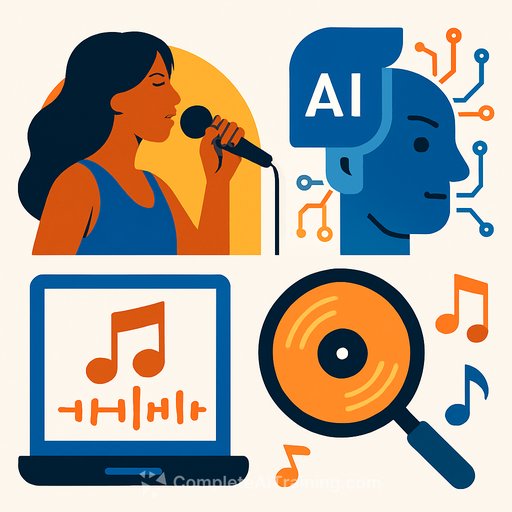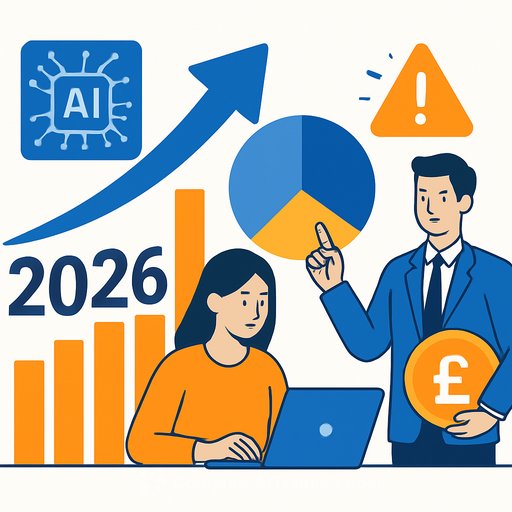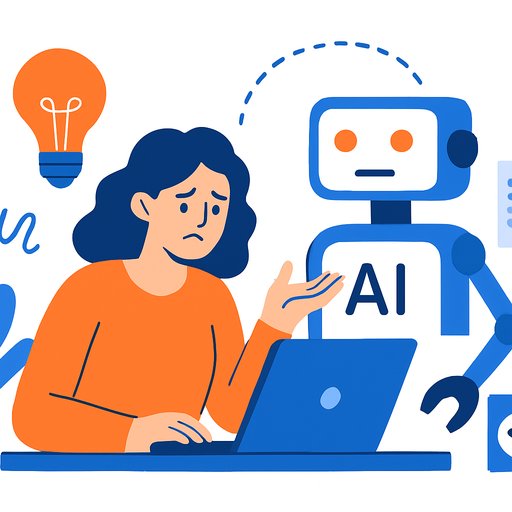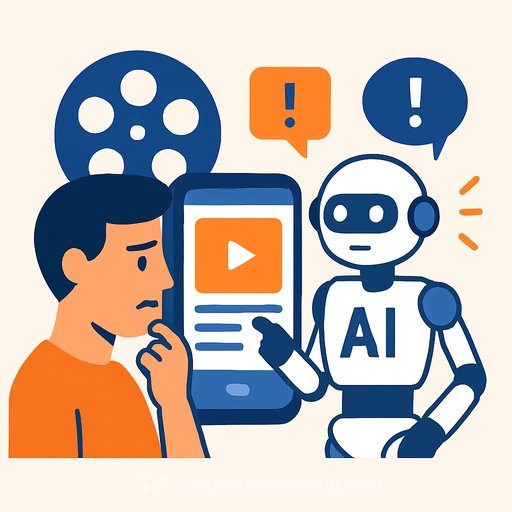Velvet Sundown: AI Music Hoax or a Sign of the Future?
Velvet Sundown blew up online, racking up hundreds of thousands of streams before it was revealed the band and their music were created by generative artificial intelligence (GenAI). Despite initial claims from the "band" that they were real, an associate later admitted it was an "art hoax" marketing stunt. This sparked debate around fairness—how can a "fake" band succeed while real artists struggle?
But Velvet Sundown isn’t an isolated case. Computer-generated music dates back to the 1950s, when a chemistry professor named Lejaren Hiller composed music with a computer. By the 1980s, David Cope’s Experiments in Musical Intelligence produced compositions so close to Chopin and Bach that even trained musicians were fooled.
More recently, artists like Holly Herndon have raised awareness about ethical use and licensing of AI-generated voices and deepfakes. Meanwhile, Grimes invited others to create music using AI versions of her voice, and "Deepfake Drake" caused concern among major record labels. Big players like Warner, Capitol, and Timbaland have signed contracts for AI-generated music, and AI-powered tools for mixing and mastering have been common since the late 2000s.
Creativity and Copyright Challenges
Despite this history, AI in music is often treated as a future problem rather than a present reality. New Zealand’s recent Strategy for Artificial Intelligence calls it a "pivotal moment" as AI advances. Government bodies are actively exploring how digital tech might reshape creativity, sharing, and protection of stories by 2040.
A key issue is the use of copyrighted material to train AI. Last year, Sony, Universal, and Warner sued two AI startups—including the one behind Velvet Sundown—for using unlicensed recordings in their training data. Musicians locally could also be affected, with no way to confirm or opt out since tech companies don’t have to disclose their datasets.
This lack of transparency clashes with Māori data governance principles and raises concerns about cultural appropriation. APRA AMCOS members from Māori communities have voiced fears about misuse of their cultural expressions through GenAI. New research showing AI-generated work displacing human creativity is worrying for local artists already fighting for visibility.
Australia faces similar problems, with GenAI used to impersonate both emerging and deceased artists. French streaming service Deezer reports up to 20,000 AI-created tracks uploaded daily, reflecting a global pattern.
Regulation: What’s Being Done?
Streaming fraud is under more scrutiny. Last year, a musician faced criminal charges for using bots to generate millions of streams for AI-created tracks. Yet on social media, musicians still compete with a flood of low-quality AI content, with little hope that platforms will intervene.
New Zealand’s laws lag behind, especially regarding deepfakes and non-consensual intimate imagery that can harm artists’ reputations. The government’s AI strategy focuses on adoption and innovation, offering little protection for creative and cultural interests.
Internationally, however, there is growing support for regulation. The European Union now requires AI services to be transparent about their training data, laying groundwork for an AI licensing system for music. Australia’s senate has recommended broad AI safeguards, including transparency rules. Denmark is even pushing for citizens to hold copyright over their facial features, voice, and body, with special protections for performing artists.
Why This Matters for Creatives
Nearly a decade ago, the music industry was called the "canary in the coalmine" for broader cultural shifts. How we handle AI challenges in music will ripple across other creative fields. Artists, producers, and creatives need to stay informed about AI’s impact on copyright, ethics, and industry dynamics.
For those looking to build skills around AI tools and their ethical use in creative work, exploring courses on AI in creative industries can provide valuable insights and practical knowledge.
- AI-generated music isn’t new but is now mainstream enough to disrupt industry norms.
- Copyright laws are struggling to keep up with AI’s role in creating and training content.
- Transparency in AI training data is critical for fairness and respect of artists' rights.
- Regulatory approaches vary globally, but momentum is building toward stronger oversight.
- Musicians and creatives must understand AI’s risks and opportunities to protect their work.
The Velvet Sundown case is a wake-up call. Whether it’s a hoax, a preview of what’s coming, or a symptom of ongoing trends, it highlights urgent questions about fairness, authenticity, and control in an AI-driven creative landscape.
Your membership also unlocks:






